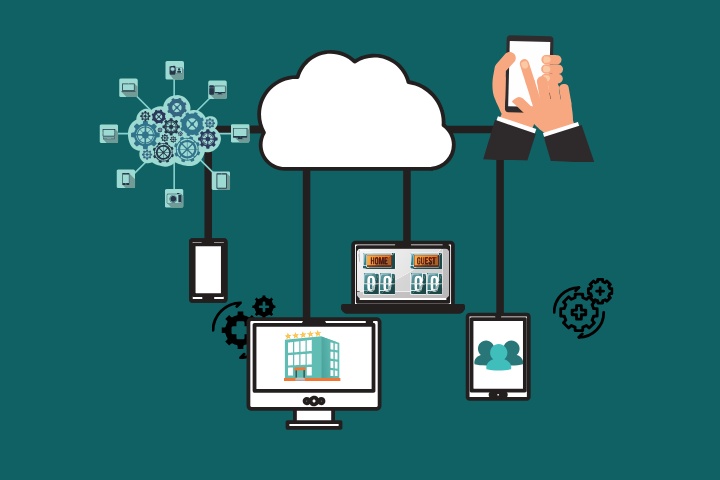In hotels where calls are directed to the wrong room, phones in guest rooms malfunction, and important information gets lost due to communication breakdowns, guests and staff have to deal with unnecessary frustrations. These scenarios are unfortunately a reality for hotels with poorly integrated systems. However, a well-chosen Private Branch Exchange (PBX) interface can greatly assist. This "translator" integrates your hotel's phone system and other crucial software, ensuring smooth operation and exceptional guest experiences.
These systems have several benefits for management staff and guests. For guests, it means they can communicate properly, reaching the hotel through preferred channels, receiving personalized service based on their profile, and experiencing reduced wait times with queue management. Additionally, hotel system integration empowers them with control and convenience, enhancing their overall experience.
Hoteliers benefit from streamlined operations with real-time notifications for efficient service delivery, data-driven decision making for informed resource allocation, and reduced errors through system integration. This translates to cost savings in labor, resources, and potentially telecommunication expenses.
Eight Tips for Choosing the Right Hotel Interface
Choosing the right PBX interface goes beyond connecting your phone system. It is about ensuring seamless communication, streamlined operations, and ultimately, happier guests. Here are eight key factors to consider:
- Compatibility: Harmony is key. Ensure your chosen interface is compatible with both your existing PBX system and the target systems you want to connect with, like your PMS or guest messaging platform. Look for compatibility certifications and test configurations thoroughly before implementation to avoid any hiccups down the road.
- Functionality: Do not settle for generic features. Identify functionalities crucial for your specific hotel needs. This might include call routing based on guest profiles for a personalized experience, multi-language support for a diverse clientele, real-time call analytics for data-driven decision making, and even mobile app integration for guest convenience.
- Scalability: Think big but start small. Consider your hotel's size and future expansion plans. Choose an interface that can adapt and grow with you, accommodating additional features and increased capacity as you expand. This ensures your technology infrastructure stays relevant and does not hinder your growth potential.
- Security: Trust is paramount. Prioritize robust security features like data encryption to safeguard sensitive guest information. User authentication and access controls further add layers of protection by ensuring only authorized personnel can access critical data. A secure system fosters guest trust and protects your hotel from potential security breaches.
- Ease of Use: Simplicity is key. Opt for an interface with a user-friendly design that caters to both staff and guests. Intuitive dashboards and clear instructions are essential for efficient operation and minimize training requirements for your staff. Additionally, consider the guest experience. A user-friendly hotel system integration empowers them to navigate the system easily, maximizing their satisfaction and convenience.
- Cost-Effectiveness: Be mindful of your budget. Carefully compare pricing structures of different solutions, factoring in licensing fees, installation charges, and ongoing maintenance costs. Choose an option that offers value for money and aligns with your budget constraints. Remember, cost-effectiveness is not only about the initial price tag, consider the long-term value and total cost of ownership.
- Vendor Reputation: Choose wisely. Select a vendor with a proven track record of providing reliable PBX interfaces and excellent customer support. Positive customer reviews and testimonials act as valuable indicators of their service quality. A reliable vendor ensures a smooth implementation process and ongoing assistance, ensuring you get the most out of your investment.
- Futureproofing: Stay ahead of the curve. Consider emerging technologies and industry trends in the hospitality sector. Choose an interface that can integrate with future innovations, allowing your hotel to adapt to changing guest expectations and technological advancements. This ensures your investment remains relevant and future-proof.
Conclusion:
Choosing the right hotel PBX interface is an investment in your hotel's communication infrastructure and guest experience. By carefully considering these eight tips, you can choose the right PBX interface, transforming your hotel's communication infrastructure into a well-oiled machine, creating a good guest experience, and ultimately, securing your hotel's success in the evolving digital age. Remember, choosing the right interface is not just about technology; it is about investing in the future of your guest experience.


No comments yet